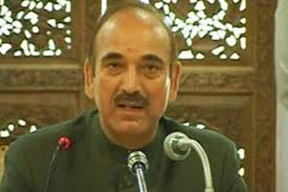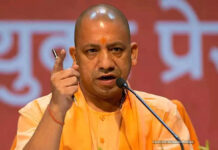 NEW DELHI: Justifying the controversial removal Union Health and Family Welfare Secretary Keshav Desiraju, Health Minister Ghulam Nabi Azad said his “casual approach and lack of attention to detail would cause serious embarrassment” to him besides “slowing down” important projects.
NEW DELHI: Justifying the controversial removal Union Health and Family Welfare Secretary Keshav Desiraju, Health Minister Ghulam Nabi Azad said his “casual approach and lack of attention to detail would cause serious embarrassment” to him besides “slowing down” important projects.
In a letter written to the Cabinet secretary Ajit Kumar Seth on February 24, Azad accused Desiraju of “absent mindedness”.
“In all meetings chaired by me including with foreign delegations, I found him busy for most part in receiving and sending SMSs and emails on his mobile phone. He paid scant attention to deliberations and left it to his subordinates to participate in the discussions. His own contribution was invariably negligible,” the letter said.
Azad was today attacked by Aam Aadmi Party (AAP) which alleged Desiraju was transferred by the government after he resisted the return of tainted former chief of Medical Council of India Ketan Desai who was arrested by CBI on the charges of allegedly taking bribe from the management of a medical college in Patiala.
AAP leader and senior advocate Prashant Bhushan alleged Desiraju was “unfairly” and “arbitrarily” transferred by Azad after the IAS officer had resisted Congress and BJP’s alleged attempts to bring back Desai in MCI as its member.
In an internal note prepared by Desiraju on January 7, the IAS officer stated “it is widely believed that all decisions within the MCI are being taken by the group led by Dr Ketan Desai.
“There is every likelihood that we will be forced to approve and notify decisions regarding courses, new admissions etc. which have been made on the grounds of other than merit alone. This would be a very unfortunate position for the government.”
After the arrest of Ketan Desai in April 2010, MCI was dissolved by the government, a Board of Governors managed the affairs of the MCI for three and half years, Bhushan said.
“However, the MCI was again restored in early November 2013 by the government ignoring its earlier commitment in Lok Sabha and Rajya Sabha to establish an overarching body i.e. NCHRH (National Commission for Human Resources for Health).
“The Ministry of Health, using the old MCI election rules of 1980, reconstituted the Council and notified 85 doctors as MCI members. 25 of these were Desai’s close associates in MCI itself in the past,” Bhushan said.
Bhushan also accused BJP’s Prime Ministerial candidate and Gujarat Chief Minister Narendra Modi of nominating Desai as a member of the MCI despite two cases being pending against him,” Bhushan said.
However, Azad in his letter to the Cabinet Secretary said he was personally reluctant “to accept Dr Ketan Desai’s nomination made by Gujarat University and therefore, directed that the law department be consulted in the matter and the issue is still under examination.”
Azad said he has steadfastly spearheaded the move to introduce transparency in MCI matters and the need to completely do away with any discretion on the part of the ministry.
“Yet Desiraju put up a file recommending review of 14 cases where MCI had denied permission and proposing extension of date of approval. Little did he appreciate that review of MCI decisions by the ministry became the ground for several complaints of corruption in earlier regimes.
Accusing Desiraju of violating MCI regulations approved by the Supreme Court, he said “I understand that Shri Desiraju personally pushed this matter having been approached by the promoters of a particular medical university and thus wanted the date of approval extended. In the process, he completely overlooked MCI regulations which were approved by Hon’ble Supreme Court.”
Another instance of “complete non-application of mind” cited by Azad in the letter “created havoc” and sparked “unsavory” agitation by young doctors, the Health Minister said.
“Given the acute shortage of MBBS doctors in rural areas…We held wide consultations to arrive at a consensus regarding one-year compulsory rural posting after 1 year internship for those seeking admission in PG courses. Desiraju prepared a note after the meeting in which he mentioned the duration of internship as 2 years in place of 1 year,” said Azad.
“We lost the hard work of three years and an excellent opportunity to send doctors to rural areas,” he added in the letter.–PTI






